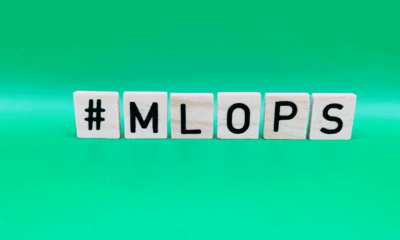
Woke Vs. Asleep Viewpoints With AI
Did you participate in the ten-year challenge on Facebook and Instagram? Seemed perfectly innocuous and nostalgic, right? Post a picture of you in 2009 and in 2019 to collect compliments on how you didn’t age or aged well. It’s also a great way to train a facial recognition algorithm on aging based on voluntary information given by the masses. Naturally, a meme circulated making this claim, which made people who didn’t participate pat themselves on the back for their vigilance. Naturally, the people who did post their decade pictures shrugged off the claim as a paranoid conspiracy theory.
As usual, people prefer to affirm their existing beliefs rather than consider that one side may err on paranoia, but the other may err on naiveté. When it comes to artificial intelligence, we tend to see these same perspectives: these two extreme sides: The Black Mirror conspiracy-prone paranoid and the downright apathetic and naïve. As we evaluate the artificial intelligence trends of 2019, we must strive to balance vigilance with ignorance so that we develop the best awareness we can have right now.
Artificial Intelligence in Marketing
For years, we’ve become accustomed to ads correlating to our search results and customer service chat robots on websites. The chat robots are mostly annoying, and the ads are mostly deemed invasive. Now we’re numb and quick to avert both, just like we are mall kiosk salespeople.
However, those are only the noticeable AI presence because they’re not invisible. The best AI in marketing is behind the scenes. Of course, you may find that more invasive, but again, awareness is better than blindness. For instance, you may notice that you tend to get curated search results based on frequency, preference, shopping behavior, interests, region, and history.
AI plays a part in SEO engine optimization and keywords, which helps you find curated content faster and not have to wade through irrelevant content and waste time. We tend to focus on it as a privacy issue, but it’s more than privacy. With some groups, being easily profiled makes them easy prey for scams. It’s very common that people with diminished cognitive abilities (ICC) to get profiled as such and consequently scammed. Protecting their privacy is even more crucial and an area where we see how AI’s intrusion is not black-and-white.
Some AI trends 2019 you can expect to see in marketing may be voice-operated search engines. We have this with our digital geishas, Siri and Alexa, and it has been predicted that half of all online searches will be voice searches by 2020. While we mentioned above how disabled people can be affected in negative, unforeseen ways by AI profiling, here, in the case of voice-activated searching, this is a helpful aspect because many people with ICC struggle to type, sit down, or feel autonomous in their website navigation.
Self-Driving Cars
In 2019, expect to see increasingly popularized self-driving cars trickle down beyond the elite and into the masses. Here again, it’s easy to foresee both benefits and risks, but of course, it’s the unforeseen consequences that will make the most impact.
Will such cars lead to the end of driver’s ed courses? What happens when an AI-focused car malfunction and the driver is behind the wheel? Is will not be able to drive become a liability? Alternatively, will it be a rare case and non-issue because technology is safe and relatively foolproof? Of course, it won’t be foolproof. Autonomy and the human brain’s adaptability can only be replicated so far.
While the move from horses to cars boosted our autonomy, AI cars stand the chance of diminishing it?
Our brains tend to anticipate worst-case scenarios to help us survive. So, our foresight can lean toward paranoia and fear-based worries. It’s only through experience that we learn the consequences of AI technologies. We don’t have the benefit of retrospect yet to look back and evaluate the choices and progression of AI.
Just like we couldn’t precisely predict how the advent of iPhones would turn us into androids, with phones, maps, and info held in the palm of our hands or how the advent of the internet would impact our lives. If we balance cautionary vigilance with open-minded curiosity, we can enjoy the benefits of future AI trends, while minimizing the risks.



